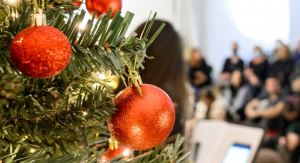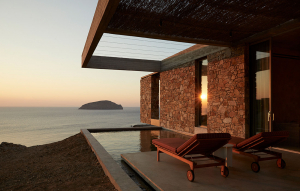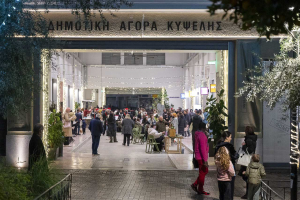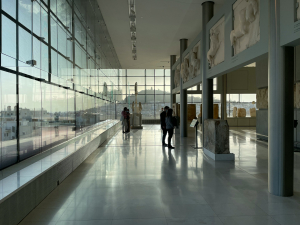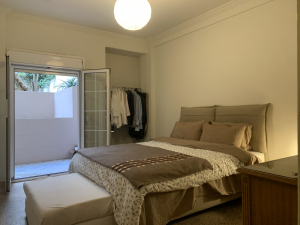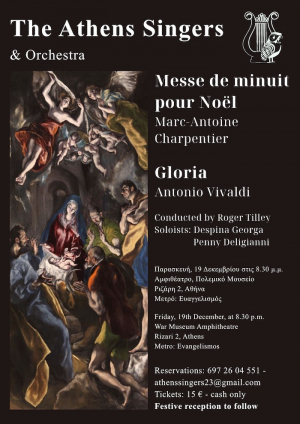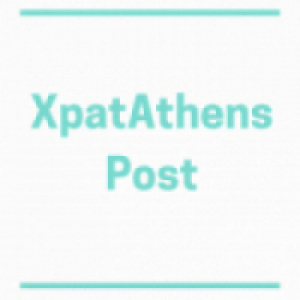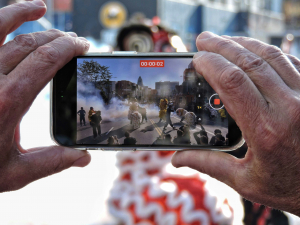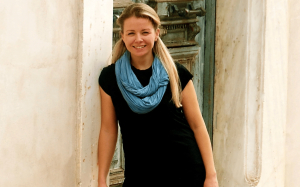ABOUT US
XpatAthens
Christmas At The Maria Callas Museum
Friday, December 19 | “The Nutcracker’s Dream” at the “Agia Sofia” Children’s Hospital by the Maria Callas Museum
Learn more here.
Sunday, December 21 | Listening Club: Songs for Winter / Christmas in Athens
After the warm reception of last year’s Christmas Listening Club, radio producer of ERT’s Third Programme and Kosmos 93.6, Giorgos Florakis, returns to the Maria Callas Museum for a second year. This time, he invites us on a winter musical journey titled “Songs for Winter.”
Free admission with complimentary entry ticket – Learn more here.
December 28–30, 2025 & January 2, 2026 | Stencil Art in the City: Create the Most Inspired Christmas Postcards! / Christmas in Athens
The Maria Callas Museum and the Industrial Gas Museum invite children and adults to a unique creative experience at Kotzia Square during the Christmas season! The two museums join forces to offer the most festive artistic event filled with color, light, and imagination. Children aged 3+ and adults will use stencil techniques to create their own Christmas postcards, inspired by the brilliance of Maria Callas and the magic of industrial architecture.
Free participation – Learn more here.
Tuesday, December 30 | Children’s Performance: Zacharias the Wolf’s Christmas / Christmas in Athens
The Maria Callas Museum hosts the children’s theatre performance “Zacharias the Wolf’s Christmas” for ages 4–8 by the theatre group “Anemomyloi.”
Wolf Zacharias does not like Christmas at all! He wanders around grumpy, looking for someone to play snowball with. But everyone is busy with holiday preparations—decorating trees, cooking festive treats, writing letters to Santa… Luckily, his friends help him get into the holiday spirit. And, of course, a wonderful surprise awaits him in the end!
Free admission with complimentary entry ticket – Learn more here.
GUIDED TOURS
Saturday, December 20, 12:00 & 13:30 | Adult & Family Tours
FAMILY PROGRAMS
Sunday, December 14 | MCM KIDS | Opera Becomes Play
A hands-on music-education journey into the magical world of opera and sound awaits children and their caregivers at the Maria Callas Museum, accompanied by a piano! Inspired by the voice and personality of the great diva, children will explore set-like rooms from three iconic operas—Norma, Tosca, La Traviata—play with rhythm, move with imagination, and finally discover Orff instruments and create their own group composition with piano accompaniment.
Opera becomes play—and play becomes expression, collaboration, and creativity!
11:30–12:30
Ages: 5–10
Learn more here.
Sunday, December 14 | MCM BABIES | Museum Goblins, Garlands, and Music
Can goblins really enter a museum? And if they do, do they bring only mischief—or also music? In this festive program, babies and their caregivers meet tiny creatures with pointy hats and playful moods that tangle melodies and twist garlands. Will we manage to untangle them? And if so, which music will guide us? Babies and caregivers will experience the magic of music and Christmas through the goblins’ cheeky antics.
We will sing, explore materials, move, and listen to sounds and melodies that warm the heart.
9:30–10:15
Ages: 8 months – 2.5 years
Learn more here.
Sunday, December 28 | MCM KIDS | Avanti Maestro! Christmas Edition / Christmas in Athens
What could a paintbrush, a piano, and a few Christmas smudges be doing inside a museum? Children and their caregivers will discover the answer through a magical festive music-art game! Guided by the melodies of a live piano and accompanied by brushes and colors, we will explore rhythm and create the most wonderful “musical smudges.” Through these playful creations, festive stories full of shapes and colors will unfold, taking us to bright, imaginary worlds where music becomes painting and the art of opera meets the magic of Christmas.
12:30–13:30
Ages: 3–5
Free participation with complimentary entry ticket
Learn more here.
The Euphoria Series At Perma Serifos
The environment shapes the experience. For this retreat, we wanted to connect deeply with the place that hosts us, and so we will be exploring the idea of taking SPACE.
The villas are arranged to provide privacy while keeping a sense of connection, supporting both me-time and communal time. Sustainability is built into the space itself, encouraging us to live with attention and intention. The island’s openness and wind add another layer: a landscape that asks us to ground ourselves while staying flexible to ever-changing conditions.
Focusing on the concept of SPACE as growth, our sessions create room to pause and recalibrate. Each is complemented by yoga practices that anchor awareness in the body. Together they work as parallel tracks: one for reflection and exchange, the other for movement and release.
The rest of the retreat follows the Euphoria Series rhythm: shared dinners, wine tasting, and quiet moments by the sea. Each becomes a way of practicing how space works in daily life, showing how privacy and connection, stillness and activity, can coexist in a way that feels natural and sustainable.
Who It's For
This retreat is designed for modern professionals, entrepreneurs, and leaders who want to prevent burnout and reconnect with their values, as well as wellness seekers, eco-conscious travelers, and food and wine enthusiasts looking for meaningful experiences in a sustainable setting. It’s ideal for individuals or small groups who want both privacy and community, inspiration and rest.
- Three-night stay at Perma Serifos
- Breathwork & intention-setting on arrival day
- Three group workshops on Space as Growth with Penelope Dimitrakopoulou, Psychologist, Professional & Leadership Coach, Mentor
- Three Vinyasa yoga sessions with Christina Exarchou
- All meals included:
• Daily brunch
• Two private dinners at Perma with local cooks
• Wine tasting at Chrysoloras Winery• Dinner at a traditional local tavern - Free time for beach, rest, and island exploration
- Master stress regulation: Learn practical techniques to move out of pressure-driven reactivity and access clarity under demanding conditions.
Christmas At Kypseli Municipal Market
This December, the Kypseli Municipal Market comes alive with festive spirit, creativity, and community. From artisan makers and local producers to live music, theater, and unique workshops, the market is the place to discover stories, tastes, and traditions that make the holidays magical.
Events
Meet the Creators
Explore the market filled with creators, producers, and small businesses, each bringing their own stories and handcrafted products. Come meet them, taste their delights, and discover what lies behind every handmade object, flavor, and idea.
📅 Thursday 11 – Sunday 14/12 | 10:00–21:00
📍 Atrium | Free Entry
Poetry Reading: “Manaviko”
Join the publishers LOGO_TYPO for the presentation of Giannis Poulos’ poetry collection “Manaviko”. His poems are small reminders of life, showing that poetry can be found everywhere.
📅 Sunday 14/12 | 11:00–13:00
📍 Megalo F | Free Entry
Christmas Blood Drive
In collaboration with Blood-e, the market hosts a festive blood donation event, spreading holiday solidarity.
📅 Monday 15/12 | 09:00–13:00
📍 Megalo F | Free Entry
KETHEA Christmas Bazaar
The KETHEA DIAVASI Family Association invites you to its Christmas bazaar. Find handmade ornaments, gifts, and treats lovingly crafted by the families of those overcoming addiction.
📅 Monday 15/12 | 13:00–21:00
📅 Tuesday 16/12 | 10:00–21:00
📍 Atrium | Free Entry
Book Presentation: “Distinction”
Discover the brilliant graphic novel by Tiphene Rivière, exploring the political, economic, and psychological dimensions of Bourdieu’s ideas, while highlighting the aesthetics and cultural mechanisms that reproduce social inequality.
📅 Tuesday 16/12 | 19:00–21:00
📍 Megalo F | Free Entry
Angelika Dusk Live
Sing along with Angelika Dusk and her five-piece band in an energetic 80s-inspired live performance full of dance, fun, and unforgettable memories.
📅 Wednesday 17/12 | 19:00
📍 Atrium | Free Entry
Christmas Solidarity Celebration
The EKAV Social Christmas Celebration returns! Enjoy festive performances by The Hive, explore the market, play ping pong, or try giant Jenga in the Atrium.
📅 Thursday 18/12 | 13:00–21:00
📍 Atrium | Free Entry
Christmas Movie Night
The Market transforms into a cinema for families, showing beloved holiday classics:
-
17:30 – The Grinch (Dubbed, 86 min)
-
19:30 – Home Alone (Subtitled, 102 min)
📍 Atrium | Free Entry
Xmas Creators Market by Frau.les
Discover new brands, support independent creators, and celebrate the festive season through a modern, creative lens.
📅 Saturday 20 – Tuesday 23/12 | 12:00–21:00
📍 Atrium, Megalo F, Mikro F | Free Entry
Mythical Transformations: A Christmas Adventure
A musical and interactive theatrical performance for children (ages 5–10) by Sandy Makropoulou, exploring the magic of Christmas through time.
📅 Sunday 21/12 | 12:00–13:00
📍 Permanent Historical Exhibition | €10/child
Neighborhood Christmas Market
Celebrate Christmas in the heart of Kypseli with children’s workshops, festive music, and local vendors offering last-minute gifts.
📅 Wednesday 24/12 | 10:00–18:00
📍 Atrium | Free Entry
Christmas Book Fest
A four-day festive book festival for all ages, featuring workshops, surprises, and presentations. The first day includes a live festive program by Foufouri Editions and ATHINA 9.84, with music by the Athens Philharmonic Orchestra.
📅 Saturday 27 – Tuesday 30/12 | 10:00–21:00
📍 Atrium | Free Entry
Workshops & Programs
The Heart of Theater – Adult Theater Group
Through fun and complex ensemble exercises, participants build trust, develop creativity, unleash imagination, and collaborate to create together.
📅 Every Monday until June 2026 | 19:00–21:30
📍 Adult Theater Group | Tickets at the Market’s box office
Info: 21 0440 0545 | hello@dak.com.gr
Woodworking Workshop
Learn the basics of woodworking and immediately put skills into practice. By the end, each participant takes home a handmade stool.
📅 Every Wednesday until 17/12 | 18:00–20:00
📍 HOKOCRAFTS | Limited spots. Info & tickets: hokocrafts.com/workshop
Our Inner Canvas
A series of experiential workshops exploring home, safety, and personal space through art.
📅 Every Wednesday until 17/12 | 18:30–20:30
📍 Creative Lab | €15/session. Reserve via @clayground
Polymer Clay Date – Christmas Edition
A festive, creative session making charms, ornaments, and small jewelry with color, sparkle, and fun.
📅 Saturday 13/12 | 12:00–14:30
📍 Creative Lab | €25 (Reserve via pinkforest.gr/workshops )
Vlavi Book Club
A space to explore and discuss influential essays and literary works. Participants must read the recommended books.
📅 Saturday 13/12 | 18:00–21:00
📍 Permanent Historical Exhibition | Free Entry
Christmas Wreath Workshop
Create a traditional festive wreath in a warm, cheerful environment with all materials provided. No experience needed.
📅 Sunday 14/12 | 12:30–14:30
📍 Creative Lab | €45 (Tickets: monstera.athens@gmail.com / Instagram )
Elves in Action – Theater Workshop for Ages 3–5
A playful Christmas adventure where little elves help Santa prepare gifts and decorate the sleigh, including a mini baking workshop.
📅 Saturday 20/12 | 11:00–12:00
📍 Creative Lab | €10/child + accompanying adult
Analog Collage Workshop
Create unique handmade compositions using old images, exploring personal stories and emotions through visual art.
📅 Saturday 20/12 | 13:00–16:00
📍 Creative Lab | €25
Christmas Mystery at Kypseli Market
A festive scavenger hunt where children and adults solve puzzles and face mischievous elves that have turned the exhibition upside down.
📅 Sunday 21/12 | 16:30–18:00
📍 Exhibition | €22/child + accompanying adult
Last but not least, at the Kypseli Municipal Market, visitors can explore a vibrant mix of pop-ups and shops offering unique gifts, handmade creations, and sustainable products. From eco-conscious brands like That Gorilla Brand and natural cosmetics from Solarz and Elichrysos, to handmade jewelry, playful fashion pieces, and festive decorations, there’s something for everyone. Discover cultural and artisanal treasures at Finikalala, support social initiatives at Anthizo and Modistra Hopemade, or find books, games, and knowledge-packed items at Skrip and POLY KOOL Bookstore. Seasonal pop-ups like Christmas Friends Market and the magical Village of Three Elves make holiday shopping joyful, while creative workshops, home décor, and woodworking collectives like Hokocrafts invite hands-on experiences. Every visit promises surprises, festive spirit, and a chance to support local creators and meaningful initiatives.
Christmas At The Acropolis Museum
This Christmas, the Acropolis Museum invites you to celebrate with imaginative children’s workshops, ancient festive traditions, guided tours through the collections, live music on the ground floor, and the striking Lamassu – a winged bull by Michael Rakowitz – in the Museum gardens. Browse unique gifts, including the 2026 lucky charm, at the Museum Shop, and enjoy seasonal dishes at the restaurant for a complete festive experience.
Children’s Program & Workshop: "Winged Mythical Creatures and the New Year’s Charm"
Young explorers are invited to join archaeologists on a magical adventure through the exhibits to discover the lucky charm of the new year. Along the way, they’ll meet winged figures – guardians, messengers, or challengers – solve riddles, and collect magical objects. The journey ends in the Educational Centre, where children can decorate their own clay charms to take home.
Dates: Saturday 27/12 & Sunday 28/12, 11:00 a.m. (ages 6–12, in Greek)
Children’s Workshop: "The Iresione and the Carols"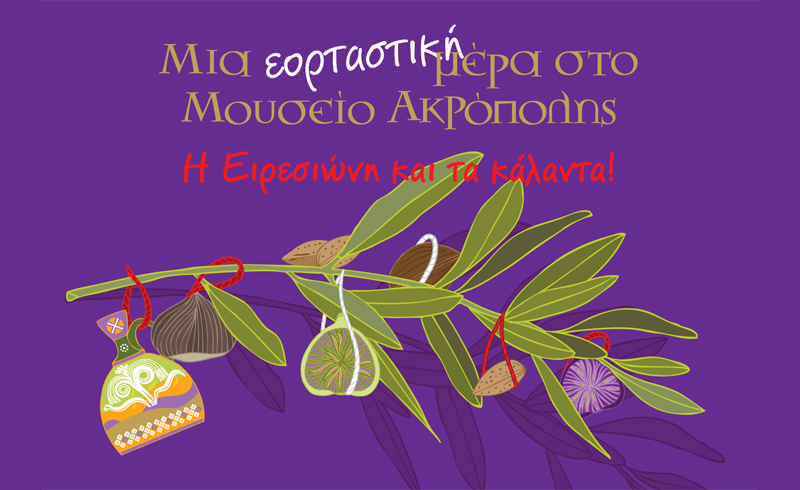
Children will decorate the Iresione, an olive-branch ornament, just as ancient children did, and sing traditional carols celebrating the New Year. Their creations will also adorn the Museum’s Iresione in the Kids Corner.
Dates: Monday 29/12 & Tuesday 30/12, 11:00 a.m. & 1:00 p.m. (ages 6–12, in Greek)
Music on the Museum Ground Floor
-
Sunday 21 December, 12:00 p.m. – El Sistema Greece Youth Orchestra
Young musicians from 40 countries perform a repertoire blending classical works, Christmas melodies, and pieces promoting peace, under Kyriaki Kountouri. Artistic Direction: Zoe Zeniodi. -
Monday 22 December, 12:30 p.m. – Cretan “Vrakofori” Dance Ensemble
Experience traditional Cretan dances and carols under Giannis Petrakis. -
Saturday 27 December, 12:00 p.m. – Hellenic Air Force Band
Enjoy New Year melodies performed by the historic band, conducted by Flight Lieutenant Konstantinos Drakos.
Exploring the Galleries of the Acropolis Museum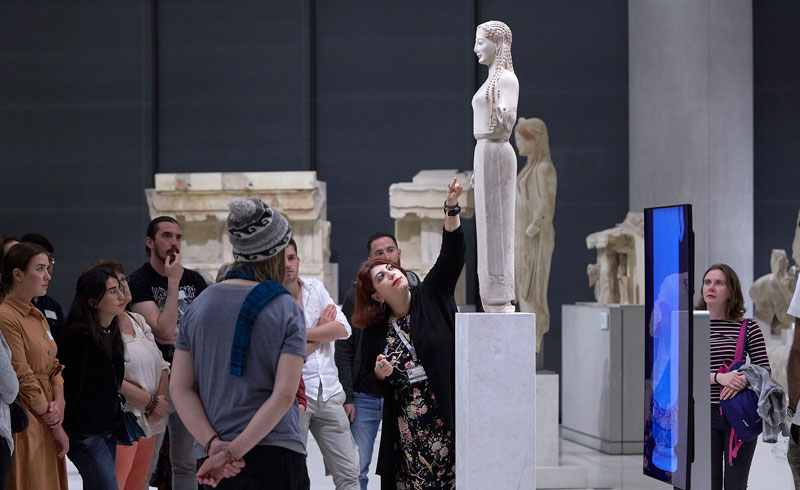
Every Saturday at 10 a.m. in English and 1 p.m. in Greek, archaeologists guide visitors through the exhibitions, sharing hidden stories and insights from the Acropolis, its monuments, and the ancient world.
Gallery talk: "The Erechtheion: A journey through a remarkable monument"
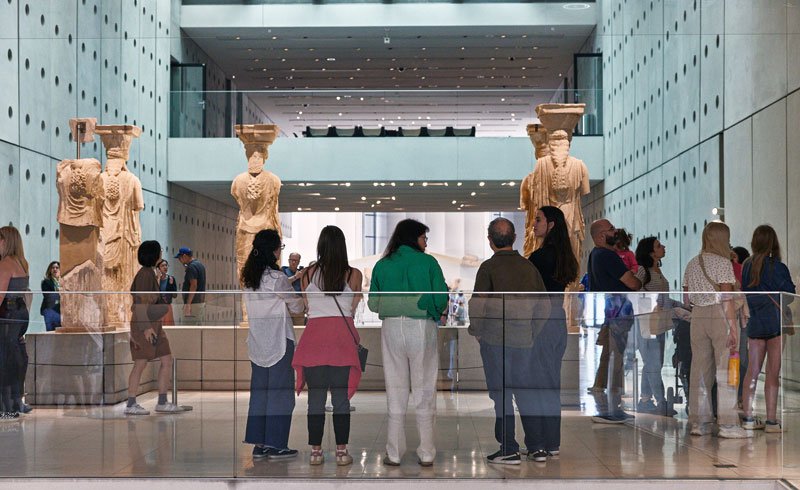
On Sunday 28 December at 1 p.m., join archaeologists for an in-depth look at the Erechtheion, one of the Acropolis’s most iconic monuments, exploring its architecture, sculptural decoration, sacred traditions, and myths. Program held in Greek.
Lamassu of Nineveh – Michael Rakowitz & Ancient Cultures, Part 2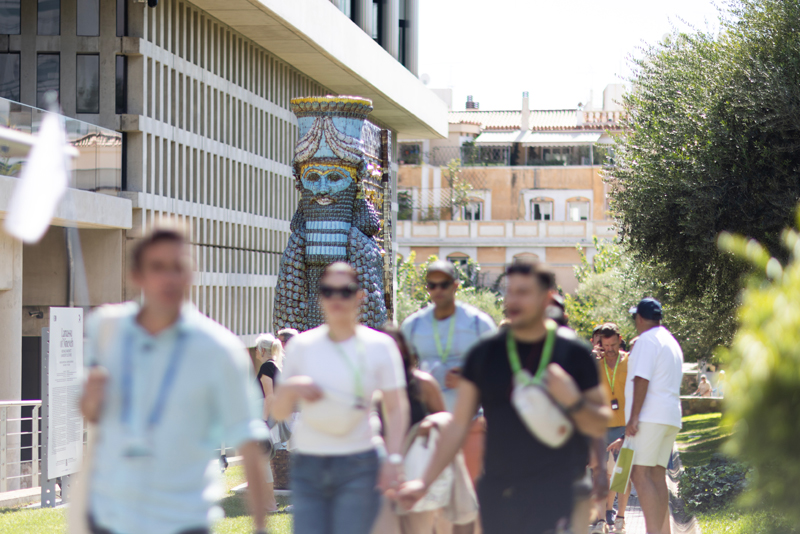
Visitors can view the Lamassu of Nineveh, a 4.3-metre winged bull with a human face, reconstructed from Iraqi date syrup cans. This striking installation dialogues with the archaeological layers beneath the Museum, the sacred Acropolis above, and the modern city surrounding it.
At the Museum Restaurant with a View of the Acropolis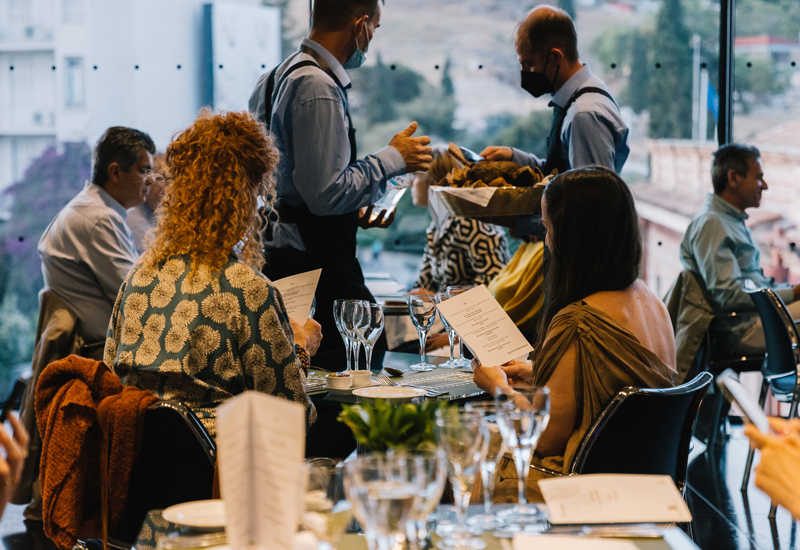
Every Friday and Saturday evening (except 26/12), enjoy festive dinners overlooking the illuminated Acropolis until midnight. On other days, combine your visit with coffee, dessert, and holiday musical events. Reservations: (0030) 210 9000 915
Festive Gifts at the Museum Shop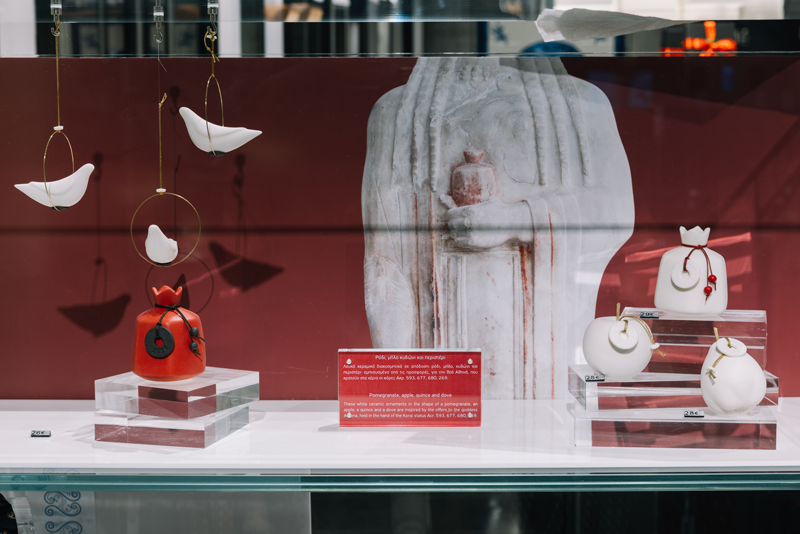
Discover beautiful decorative items and unique gifts, including the Museum’s 2026 lucky charm, inspired by the 6th-century mosaic floor patterns of Building Z. These pieces reflect the wealth, prosperity, and craftsmanship of the ancient Acropolis, making perfect festive gifts.
For more information, please visit theacropolismuseum.gr.
The Most Beautiful Christmas Lights In Athens
Syntagma’s lights, the most iconic
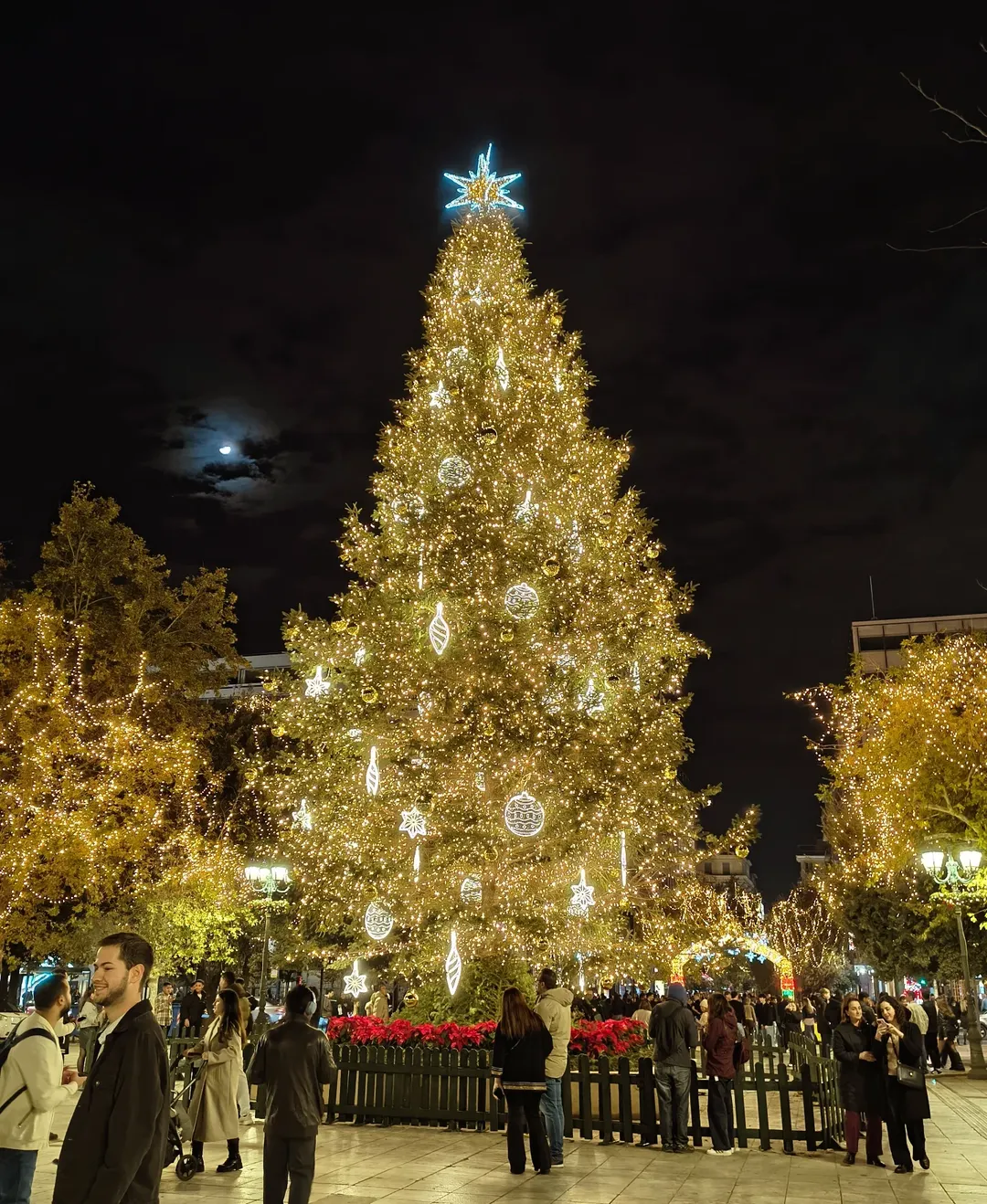
@ranniabcreative
On November 27, not even the rain could stop the crowd from gathering at Syntagma Square for the official start of Athens’ holiday season! Mayor Haris Doukas lit up a spectacular 19‑meter Christmas tree, sparkling with no less than 5 km of lights and 60,000 bulbs! The celebration also switched on the festive glow across central Athens, from Panepistimiou and Stadiou to Ermou and Vassilissis Sofias Avenue.
Since that joyful kickoff, you can wander through Syntagma Square, the beating heart of Christmas in Athens, and soak up the festive vibe as local musicians keep the spirit alive all December long.
Christmas Factory’s lights, the most family-friendly
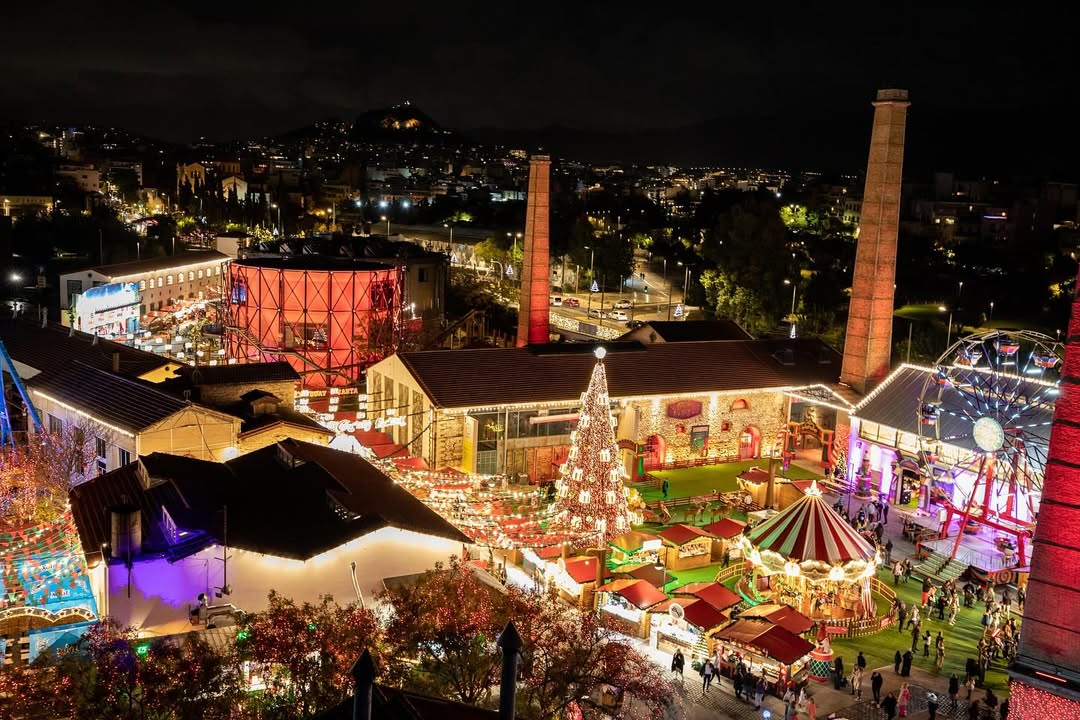
@georgespanosphotography
Once again, the Christmas Factory lights up Technopolis in Athens! The old factory turns into a festive funfair as Santa and his elves open up their magical universe to us.
This year’s theme, Find Your Star, invites kids of all ages to join unique missions across 10 interactive workshops, from fairy‑tale storytelling and painting to music, not to forget the famous little train and ice rink. Thousands of sparkling lights paint scenes in the sky… and who knows, while strolling through the wonderland, you might just bump into Santa himself!
Stavros Niarchos Foundation Cultural Center Christmas World, the most artsy 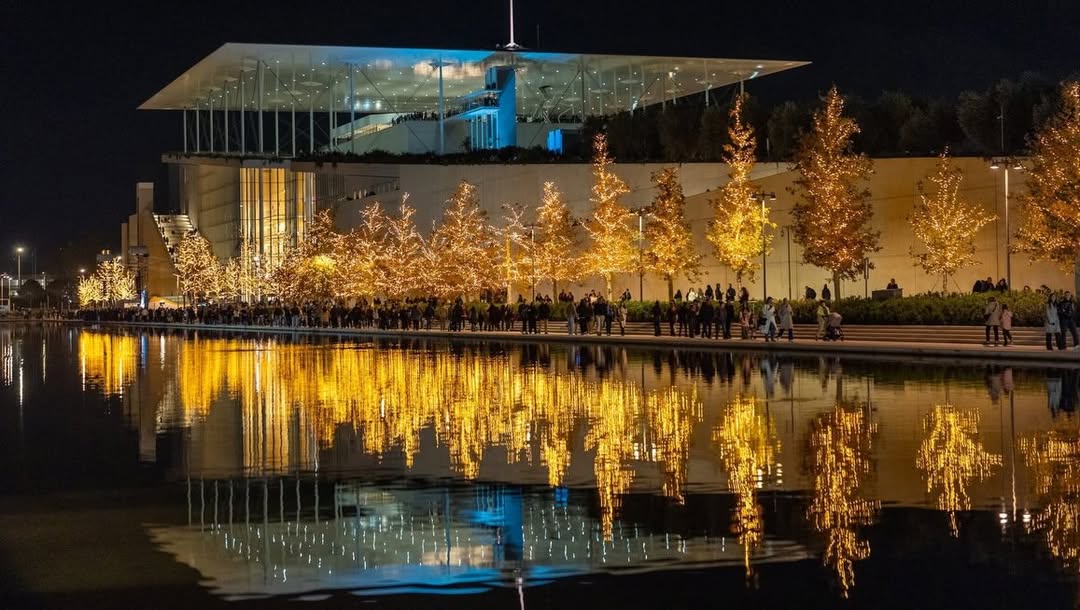
@karanikolas
The Stavros Niarchos Foundation Cultural Center kicks off a month of artsy, festive events, peaking on New Year’s Eve. Glide across the canal ice rink or wander through the Festival of Lights in the park, with dancing fountains and sparkling trees. This fairytale world, created by international and local artists under the theme BioLumina, hosts a rich program of concerts, performances, DJ sets, workshops, and screenings. From butterflies emerging on the green roof to dandelions floating around the dome, the Light Installations Festival stages a poetic dialogue between nature and festive season.
Pedion Tou Aeros, the most immersive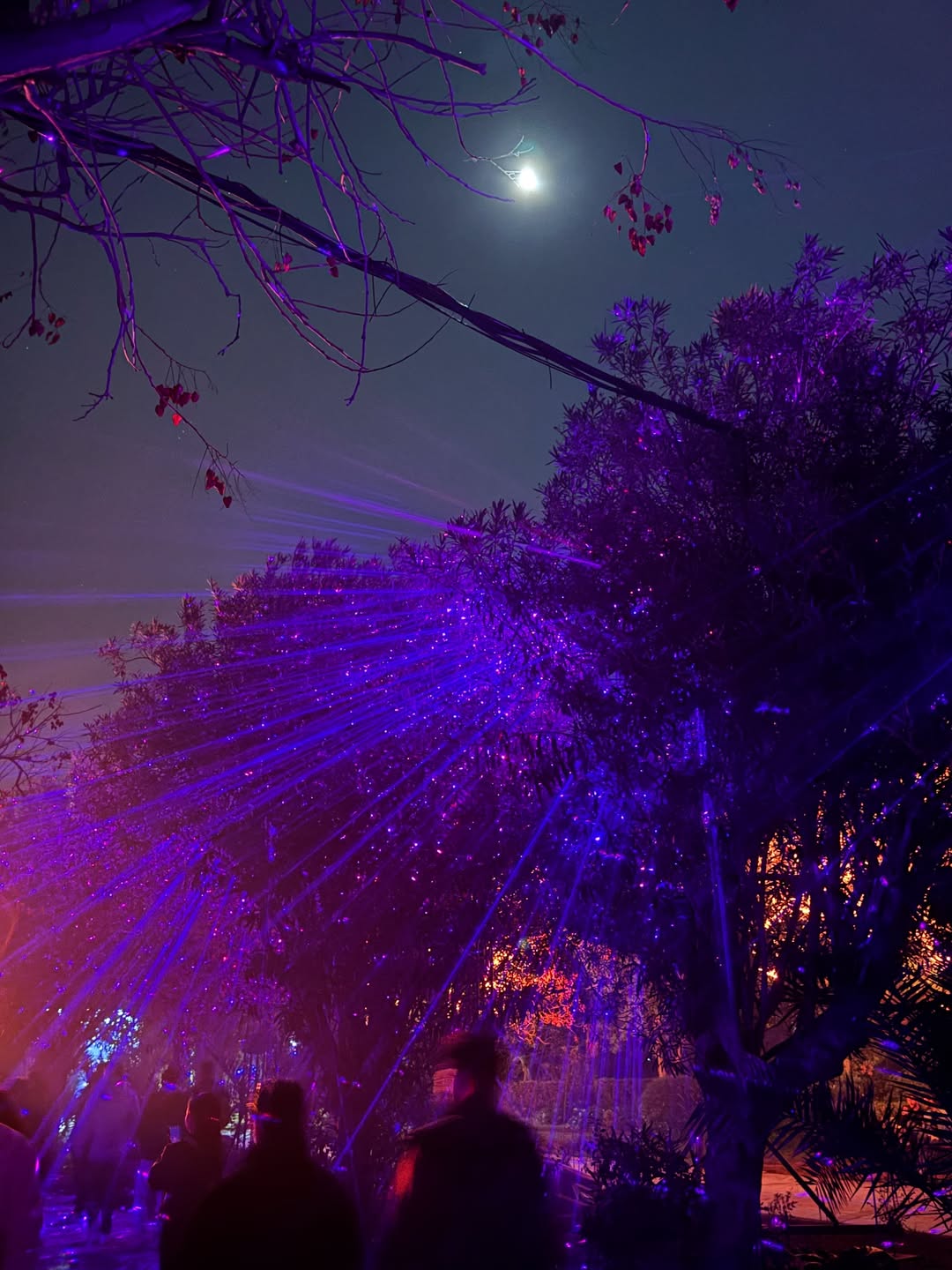
@athensfrow
Pedion tou Areos, one of Athens’ most frequented parks of the city, has transformed into a glowing Christmas Village with its own illuminated tree and a month‑long celebration of holiday cheer. After the success of 2024, concerts, ice rink and lively shows return to brighten the festive season. Wooden chalets overflow with handmade creations, gift ideas, and Christmas treats but the star attraction is an impressive illuminated trail inspired by the park’s design, inviting you to wander along the glowing river or beneath trees alive with vivid beams of light. Rediscover your favorite park by night, shimmering under the magic of Christmas illuminations!
Little Kook, the most delicious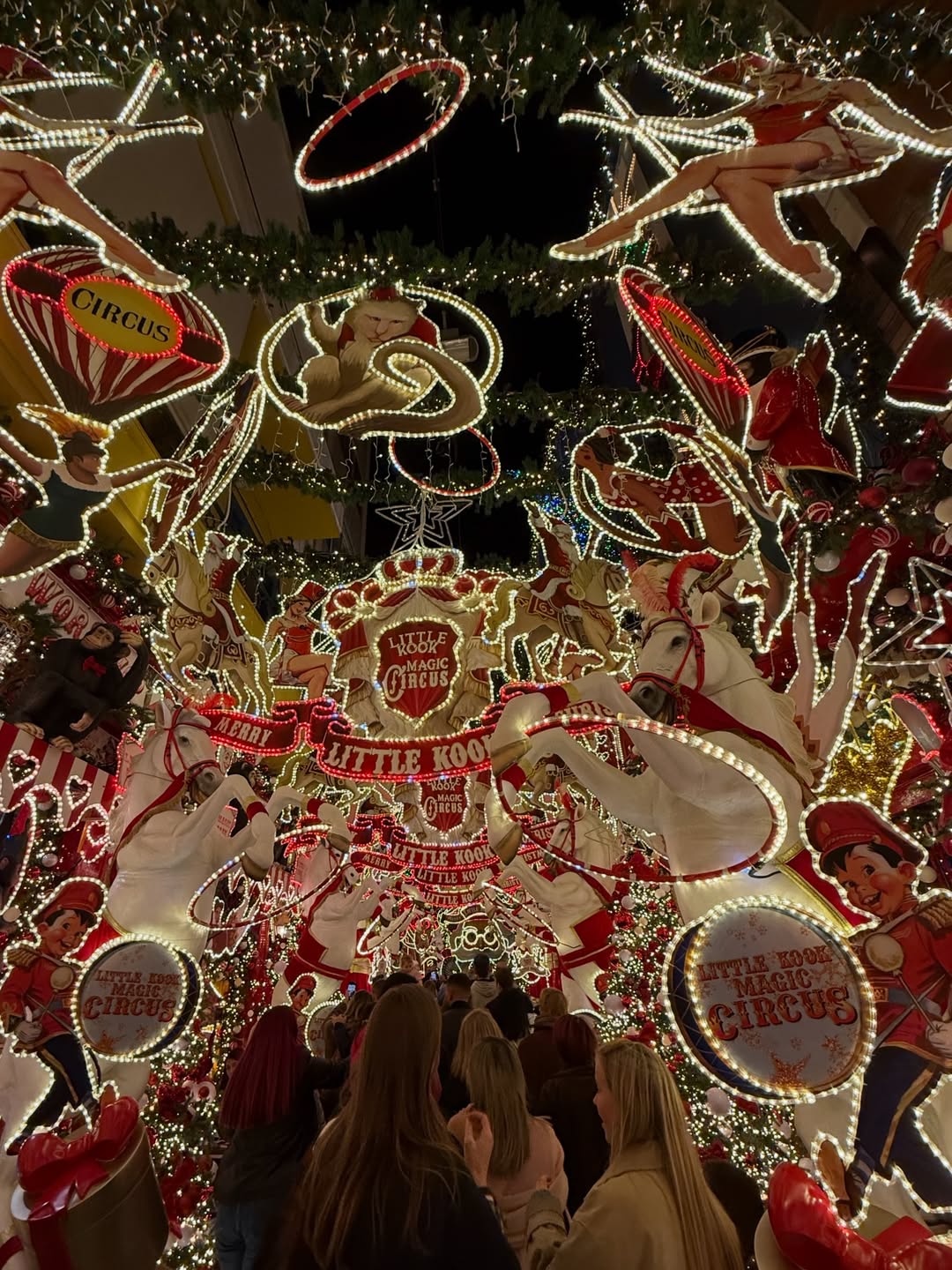
@karmaclaudia
In the heart of Psyrri, a café goes all‑out with jaw‑dropping seasonal décor that changes every time of year, turning into a daily attraction for both locals and tourists. This Christmas, the theme is Circus, with dazzling festive touches everywhere. And don’t forget to snack while you’re there… after all, it’s still a café!
Karavaki, the most traditional
Before the Christmas tree became a universal symbol, Greeks celebrated with the karavaki, a small wooden boat adorned with lights, a meaning far beyond decoration. They symbolized hope, protection, and the wish for a safe return, for sailors far from their families, especially during this season of gathering with loved ones.
The tradition usually begins on December 6, in honor of Saint Nicholas, protector of seafarers, and fills the season with prayers for safety and togetherness. Stroll through Athens in December and you will surely come across this motif scattered throughout the city, shimmering among the Christmas decorations, for instance, you can spot a large illuminated one in the Gazi district, right across the Christmas Factory!
And if you can’t decide between all these dazzling spots (why choose, really?), head up to Mount Lycabettus for a sweeping view of it all! It’s the perfect spot to catch Athens dressed in Christmas lights or the New Year’s fireworks, while savoring Melomakarona and Kourabiedes.
Queen Size Bed For Sale
Other items for sale: 1950s dining table; Solid wooden bathroom mirror; Wooden garden table.
Make an offer. Must be collected from Kypseli
The Athens Singers Christmas Concert 2025
As in previous years, the festive reception after the concert is included in the ticket price.
The concert will begin at 8:30PM at the War Museum Amphitheatre at Rizari 2, conveniently located near the Evangelismo Metro stop.
Tickets are €15, CASH ONLY.
Open Call For Creative Collaborators
Compensation: Competitive hourly rate starting at 25€\40€ per hour workshops delivered.
Support: Provision of teaching materials budget and administrative support.
The Rise Of Short-Form Video Culture Among Students In Athens
Shifting Digital Habits Among Young Users
Local Style and Cultural Expression
Creativity & School Life
Community Responses & Guidance
Frequently Asked Questions
From Toronto To Athens: Elena Tzavara’s Journey With XpatAthens
~ It’s 2004, and Athens is alive with the energy of the Olympics. Stadiums are rising, the city is being “cleaned up”, and for Elena, director at XpatAthens, a lifelong dream of making Greece her home is just beginning.
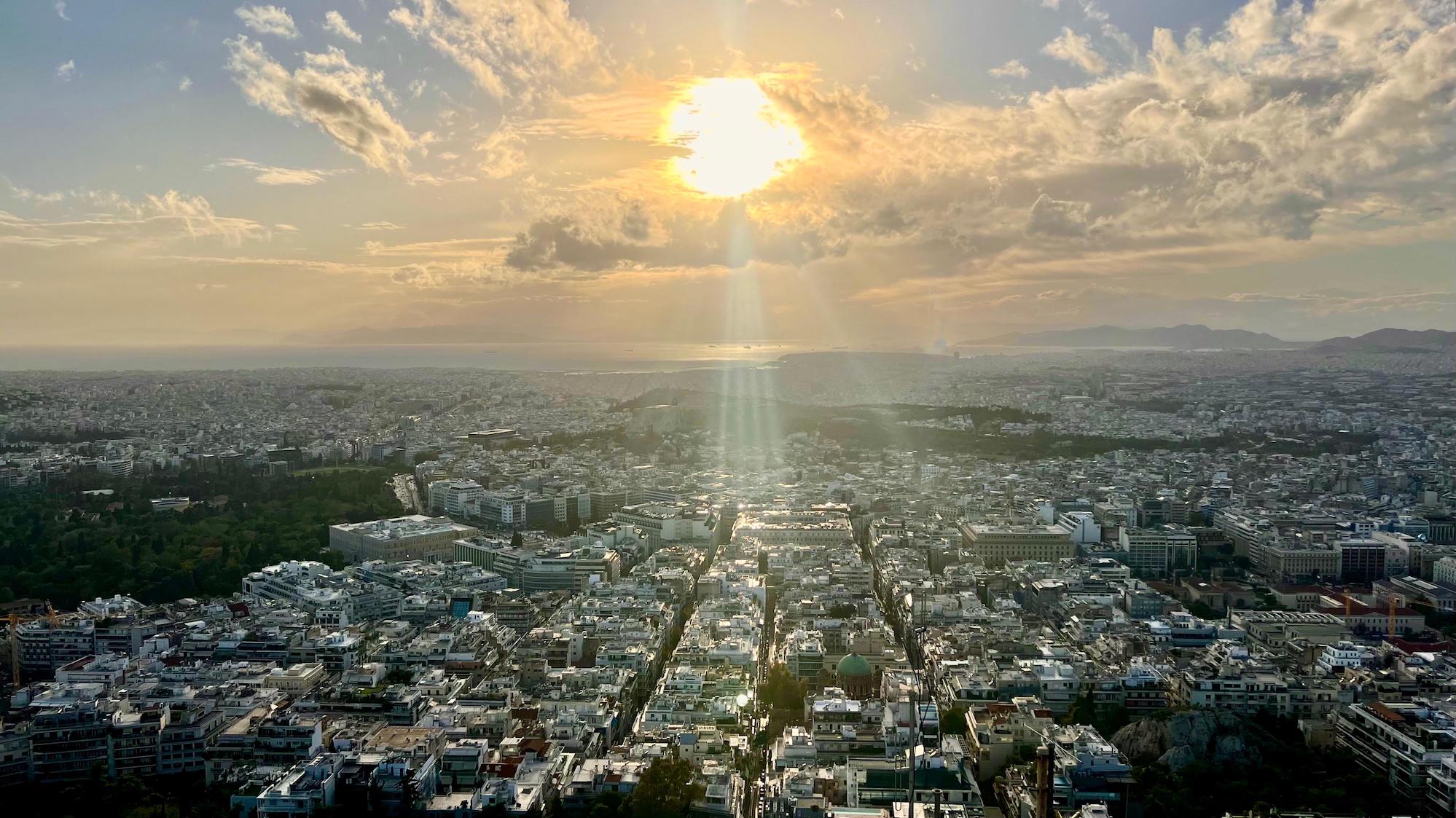
Courtesty of @chromecabrio
Part of that growth is the arrival of Wellness Hub Greece as part of our non profit organization; it will be ready this December, and we’ve already introduced it on XpatAthens. This new communication and community platform is born from a deep passion for human wellbeing. WHG will be a digital space for Greece's wellness community; serving as a communication tool for the industry overall (who's doing what and where in Greece), while also a place where anyone can explore curated wellness experiences in Greece - from practitioners and retreats to workshops and tools designed to support a more balanced life.
And as we continue to grow and share the best parts of Greece, there are ways support our work, even little gestures help us to keep this community alive. There are also ways to share your offerings on our platforms, and we are most grateful for corporate sponsorships too!
A Message To Our Readers
XpatAthens has always grown through real stories and real connections, so we’d love to hear from you too. If you ever feel called to share your own experience or simply reach out, you can get in touch with us here. Conversation has always been part of the heart of this community.
Many of the insights that guided the evolution of XpatAthens — the inner clarity, the purpose-work, the storytelling — are part of Innerbloom. It’s a space dedicated to helping people and brands find their voice, refine their story, and feel more aligned with the work they’re putting into the world. If you’re curious, you can explore more at: www.innerbloom.gr

